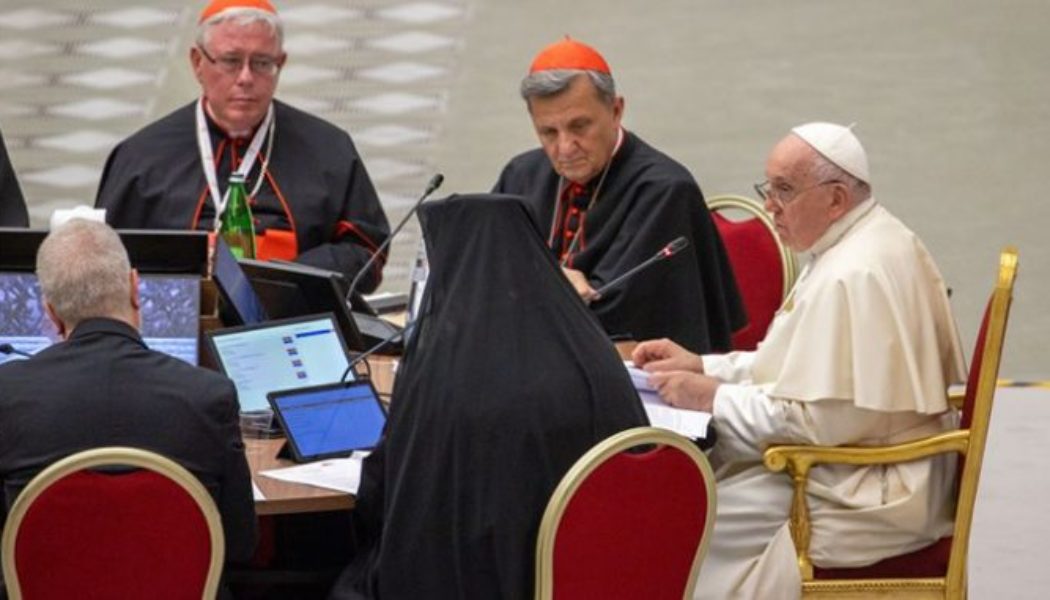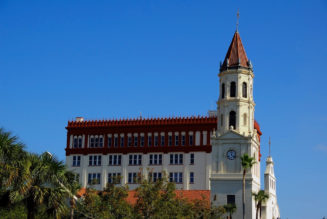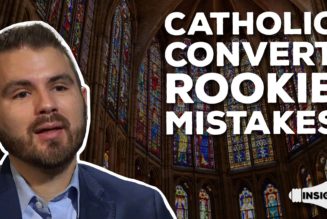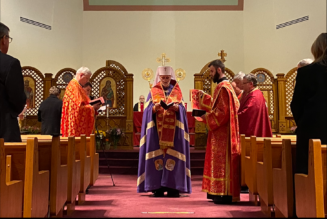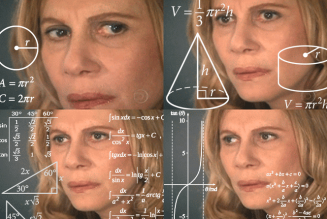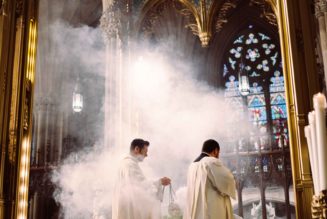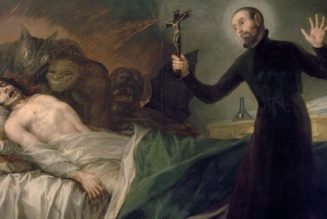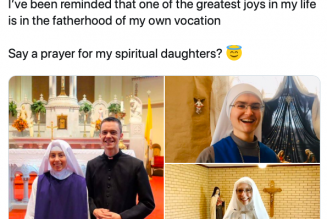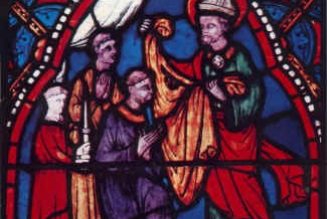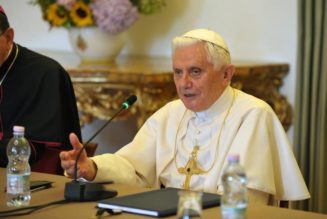
I am now home from Rome and want to try to summarize what I had learned while there and my overall impressions about the Synod.
Let me start with an anecdote.
Fifteen years ago, I was hosting my eight-year-old nephew on a vacation to my home in Pennsylvania. We were driving to Gettysburg and as we were crossing the Susquehanna river I said to him that the river is very beautiful and “wide and shallow”. To which he responded with an impish grin: “You’re wide and shallow.”
Those words came to my mind as a most apt description of the big Meeting on meetings that the Vatican has strangely decided to call a “Synod on Synodality”. I say “strangely” because we still do not know what synodality means in any specific theological sense. And the various synodal spokesmen have even insinuated that the very attempt to pin down a precise theological definition is a violation of the open-ended and wide-ranging dialogue that is the very essence of the thing.
Therefore, and quite literally, the organizers of the Synod view it as something “wide” insofar as it aims to include, as the Pope says, the opinions of “everyone” (Tutti!!) on a very wide range of hot-button topics. And this casting of a wide net of opinion gathering seems to be all that they mean by “synodality”.
Yet the Synod’s “wideness” is also strange in the sense that it seems engineered by the Vatican’s army corps of engineers to stay within certain well-defined parameters. Instead of the wide and free-flowing wildness of a river, it appears to be closer to a channelized irrigation canal with high concrete levees in place lest it spill over its defined boundaries. The majority of the Vatican’s hand-picked synodal voters lean in the progressive direction. The Relator General of the Synod, Cardinal Hollerich, is a public dissenter from Church teaching on sexual morality. The priest who led the pre-Synod retreat, Father Timothy Radcliffe, is a well-known theological progressive who dissents from Church teaching. Meanwhile, Pope Francis just granted a one hour private audience to Sister Jeanine Gramick of New Ways Ministry (itself a dissenting organization) knowing full well what the optics of that meeting imply. Fr. James Martin, SJ, has enjoyed his usual visibility and approval from Vatican apparatchiks.
So there is an apparent “wideness” to a progressive reading of LGBTQ+IAA issues, but not in the other direction. Where is a private papal audience with the leaders of the orthodox, outreach ministry “Courage”? Why are none of their leaders voting members of the Synod? The Synod was treated to heart-rending stories about the pain of LGBTQ people and how the Church’s “unwelcoming” teachings have inflicted incalculable harm on them. But there were no equivalent testimonies about the spiritual toxicity and death-dealing nature of much of the homosexual subculture in the West and how thousands of homosexuals have found their way out of that mess via the path of sanctification in the Church. Those “experiences” seem unwelcome in this Synod and the voices of those people are summarily ignored and suppressed as unhelpful. I have heard from many such homosexual Catholics who now think this pope has just thrown them under the bus as just a bunch of self-loathing neurotics who have imbibed the ideology of their oppressor. And in this case the “oppressor” is the Catholic Church and her traditional teachings on sexuality.
This synodal wideness is strange indeed. There is constant chatter and bloviations about a Church “on the move” and a “listening Church” and a Church that is “open to the development of doctrine” and a Church “discerning the Holy Spirit and the God of surprises”, and so on, ad nauseum. We are told to cast a wide net and be open to change in ways that may make us uncomfortable. But there is no equivalent emphasis on the stability of doctrine over time or of the need to hold fast to those doctrines as the only true antidote to our culture’s pornified apotheosis of the most weird and dark erotic fetishes. There is no apparent awareness of the profoundly unChristian nature of our culture’s nihilistic and runaway reductive naturalism, as the Synod rushes in to baptize these “signs of the times” as the very voice of the Spirit.
It is also a strange kind of “wideness” when around 360 people claim to be speaking for all of the “people of God”. Once again, this has every appearance of a channelized wideness, with the faith of 1.4 billion Catholics now funneled through the narrow choke-point of a few hand-selected synodalists. How strange that the Vatican decided that these spokespersons for the people of God should remain silent in public about what it is they are discussing at the Synod in the name of the People of God.
And so we have the bizarro world spectacle of the People of God being left in the dark about what it is their representatives are saying about what it is that the People of God want. Apparently, the People of God are to be selectively listened to, but not trusted, and therefore the synodal deliberations must be free of interference from the pesky People of God so that the People of God can get things done. You can’t make this stuff up.
We are told that the listening sessions gauged the mood of the whole People of God and that the Synod is basing its deliberations on those responses. However, in all of the press releases and interviews I have seen, I have not noticed any mention whatsoever of those listening sessions. And among the few synodal participants I have spoken to, there was no mention of the listening sessions. Perhaps they are being discussed in the synodal sessions, but once again, how would we know? And the public face of the Synod has made no mention of the listening sessions.
In the run-up to the Synod over the past year much was made of those listening sessions as a widening of the Church’s arc of governance and a widening of her structures to include, finally, a true listening to everyone. But it seems they have been left behind and were a mere façade meant to portray a wide arc of discourse when in truth they were a mere rhetorical device designed to act as a catalytic jumping-off point for something else. And that something else was the use of the language of “wideness” as a synonym for deconstruction and a subterfuge for an ecclesial revolution in doctrine.
I am not saying this was and is the agenda of Pope Francis. But it is the agenda of those he has put in charge of the thing; you can do the math and connect the dots. I am done trying to figure this Pope out and I am done with the “popesplainers”. Over a decade into his pontificate, it is clear that he is really good at one thing, and that is sowing confusion. For ten years he has pitted doctrine against compassion, truth against mercy, and theology against ordinary experiences. And therefore the “wideness” of the Synod is a reflection of this message and even a kind of capstone to it. No doctrines will be changed because doctrines are for immature Christians who need such props. What we need to change is pastoral praxis so that it privileges the wide boulevard of modern secular values. And this is what the Pope means when he says everyone (Tutti!) is welcome in the Church. He does not mean unrepentant rapists, neo-Nazis, misogynists, climate change deniers, or Latin Mass lovers are welcome. He means that broad swath of “average modern people” in all of their secularity are welcome.
Again, it is a strange wideness with a tendentious predilection for all things modern, Western, bourgeois, and sexually antinomian built into its teleology. And the privileging of this kind of wideness is what we now call “synodality”.
In all of this, there is also an extreme theological shallowness–a shallowness that seems to be in the service of its pseudo “wideness”. To me, the single most disappointing and aggravating thing about this Synod is the almost total lack of any theology at all, let alone a deep and profound theology. The incessant appeal to the language of “inclusion”, “welcoming”, and “dialogue with the marginalized” is almost completely framed in the thought categories of modern pop psychology and armchair sociology. There is a crackpot, cracker-barrel preachiness about it that divides people, very simplistically, into the shopworn typology of those open to the Spirit and those rigid, pharisaical backwardists who are closed to the Spirit.
It is rarely phrased in such blunt terms, but the mentality is everywhere in the Instrumentum Laboris and in the many public comments made by various Synod leaders.
Of particular note is the lack of a profound theological anthropology, grounded in Christ, as was called for by Vatican II. As Gaudium et Spes put it, “In reality it is only in the mystery of the Word made flesh that the mystery of man truly becomes clear” (GS 22). The Council developed this Christocentric anthropology, and the theology of grace it implies, in deep and profound ways. And the linchpin of it all is the affirmation that human beings are constitutively oriented to Transcendence and are thus radically open to the transforming power of grace.
Pope John Paul II, who was at the Council, developed this theology beautifully and therefore emphasized in Veritatis Splendor that there is no sin too great for grace to overcome. Yes, he mentions mitigating circumstances and the role they play in limiting moral guilt. He was not a naïve and doctrinaire objectivist devoid of a sense of the spiritual psychology of the soul. But he also understood that the theological anthropology of the Council demands an emphasis upon the universal call to holiness and that the quest for holiness is a requirement of all Christian discipleship. We fail and we stumble and we sin, but we must always keep the moral commandments in view and we must always strive to overcome our sins because we are indeed beings meant for spiritual greatness beyond our wildest imaginings.
But the theological shallowness of this Synod appears intent on blunting such spiritual imaginings and denying the efficacy of grace to truly transform lives. Instead, there is an almost Lutheran sense of the intractable perdurance of sin in some people that is impervious to grace which is why these people must just be “accompanied” since this is “the best they can do right now in their complex circumstances”.
But this is not the theology of Vatican II. Indeed, it is barely theology at all. And so it is doubly galling to read comments from synodal participants that the Synod is “finally” implementing Vatican II, as if the conciliar project had been rudely interrupted by John Paul II and Benedict XVI (who both were present at the Council!), but has now been retrieved for the first time by Francis. It is galling because it is both false and shallow. It is galling because it speaks as if 360 people sitting at round tables chatting about the hot button issues of the day in near-total secrecy is the governing style that Vatican II had in mind.
By contrast, the Council took years to bring together with hundreds of theologians and thousands of bishops developing schemata after schemata that had been carefully crafted by the Church’s best and brightest, and which were then publicly debated on the floor of the Council over many years, before finally being brought forward for a vote by almost all of the bishops of the Church. And it is an insult to the depth and vast richness of that project that it is now reduced to such shallowness and wrongly invoked as a justification for this current exercise in an elitist and bureaucratic implementation of the vision of Joachim of Fiore that we are now in an unfettered and unpredictable “age of the Spirit” where God now blesses that which He once forbade.
In this regard, I am reminded of the vice presidential debate in 1988 between Dan Quayle and Lloyd Bentsen. Quayle was young and defended his youthful inexperience by appealing to the fact that John F. Kennedy had also been inexperienced and young when elected President. Bentsen pounced on this and said to Quayle, “Senator, I served with Jack Kennedy. I knew Jack Kennedy. Jack Kennedy was a friend of mine. And Senator, you are no Jack Kennedy.”
That is what I want to say to those synodalists wrapping themselves in the mantle of Vatican II while promoting an extreme theological shallowness contrary to that Council. I want to say to them, “Synodalists, I grew up with Vatican II. I studied Vatican II. Vatican II formed me. Vatican II is a friend of mine. And synodalists, your Synod is no Vatican II.”
If you value the news and views Catholic World Report provides, please consider donating to support our efforts. Your contribution will help us continue to make CWR available to all readers worldwide for free, without a subscription. Thank you for your generosity!
Click here for more information on donating to CWR. Click here to sign up for our newsletter.
